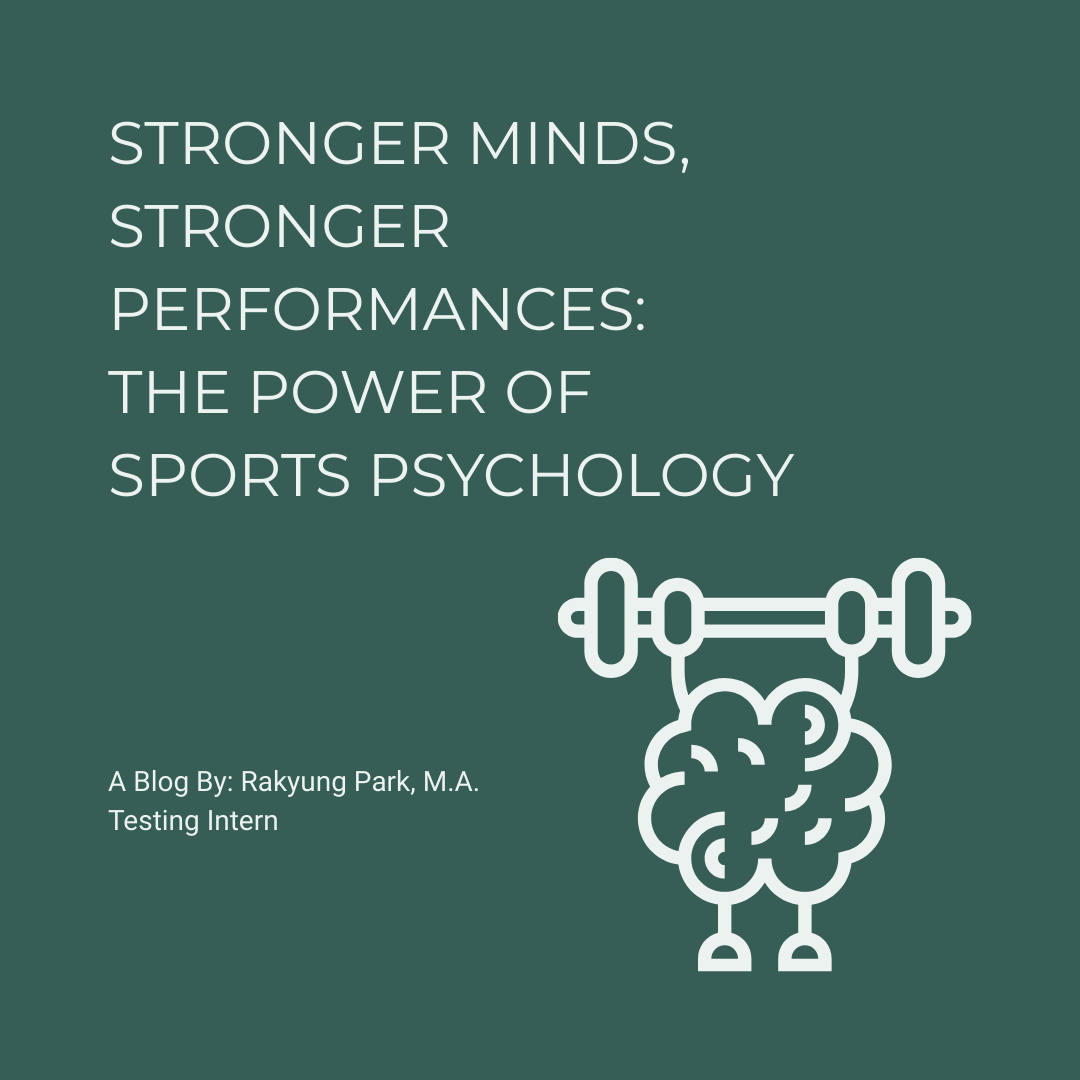Stronger Minds, Stronger Performances: The Power of Sport Psychology
By Rakyung Park, M.A.

Stronger Minds, Stronger Performances: The Power of Sport Psychology
When we think of great athletic performances, we often imagine hours of physical training, practice, and discipline. But what separates good athletes from great ones often isn’t just physical—it’s the mental side of the game. Focus, confidence, resilience, and mental toughness are what allow athletes to push past limits. And that’s exactly where sport psychology comes in.
What is Sport Psychology?
Sport psychology is a specialized area of psychology that focuses on the mental, emotional, and behavioral factors that influence athletic performance. In practice, this can mean working on skills such as:
- Confidence and positive self-talk
- Visualization and mental rehearsal
- Finding your “zone” (IZOF – Individual Zone of Optimal Functioning)
At the same time, sport psychology also addresses mental health concerns that can impact performance and overall well-being, such as anxiety, depression, burnout, or perfectionism.
Why is it Important for Athletes?
Athletes face unique challenges that can’t always be understood through a general mental health lens. For example:
- Life after sports: Many athletes feel lost or even depressed when they retire. After dedicating 10–15+ years to their sport, it can be difficult to adjust to life without it. Sport psychology helps athletes prepare for this transition, supporting them as they build identities and passions outside of competition.
- The hidden side of mental health in athletics: In her memoir Fast Girl: A Life Spent Running from Madness, Olympic runner Suzy Favor Hamilton shared how her undiagnosed bipolar disorder and manic episodes fueled both extreme training behaviors and risky decisions. Her story highlights how mental health struggles can sometimes be mistaken for dedication or drive, making it critical for athletes to work with professionals who truly understand the athletic world.
Training the Mind, Just Like the Body
The good news is that mental skills can be trained—just like physical ones. Sport psychology provides athletes with the tools to not only improve performance but also to enjoy their sport more fully and maintain balance in life.
If you’re ready to strengthen your mental game and build a healthier relationship with your sport, reach out today. At Restoration Psychology conveniently located in Centennial, CO, we’re here to walk with you through every season—together, we can restore your heart, mind, and soul.
Go Back